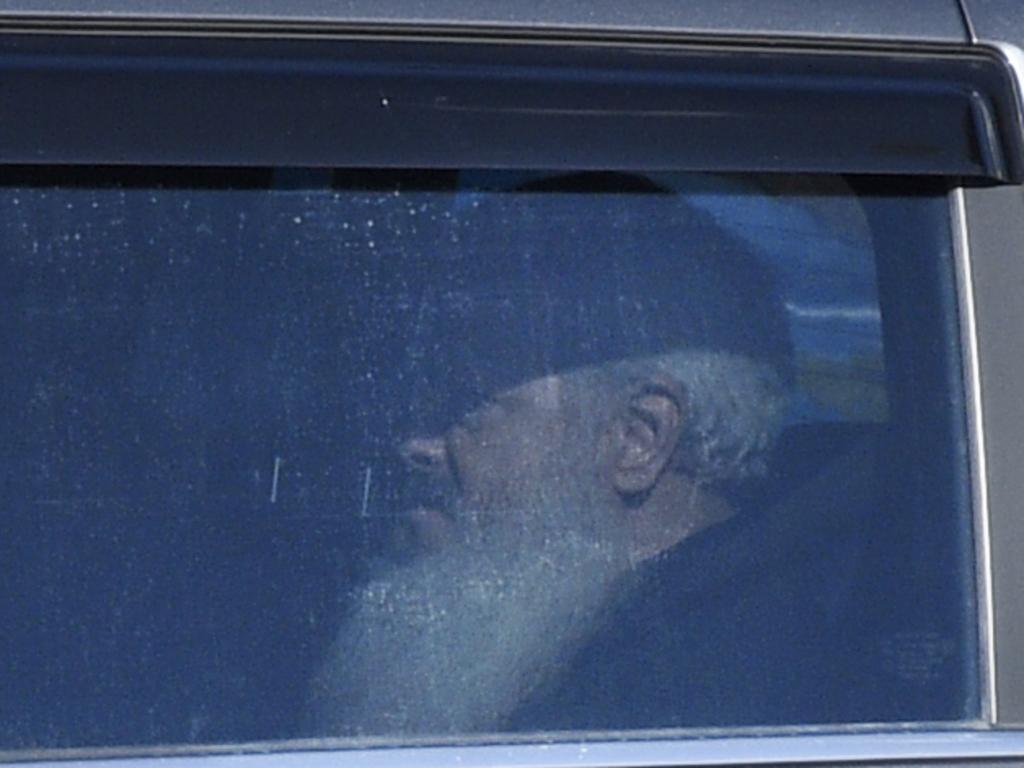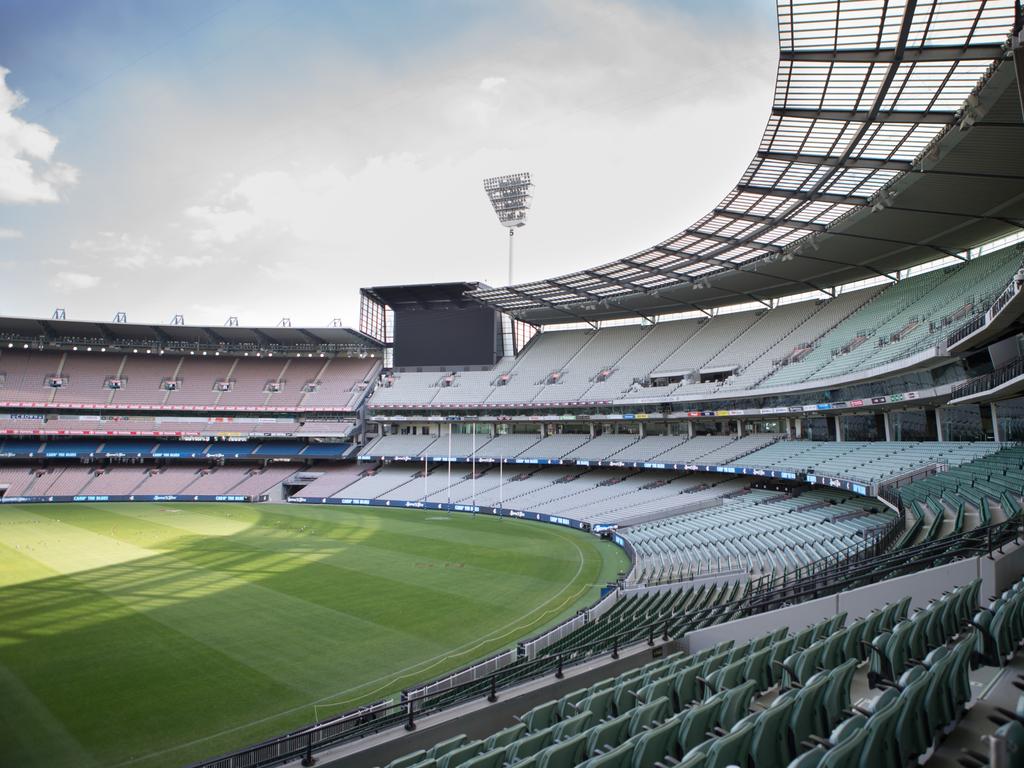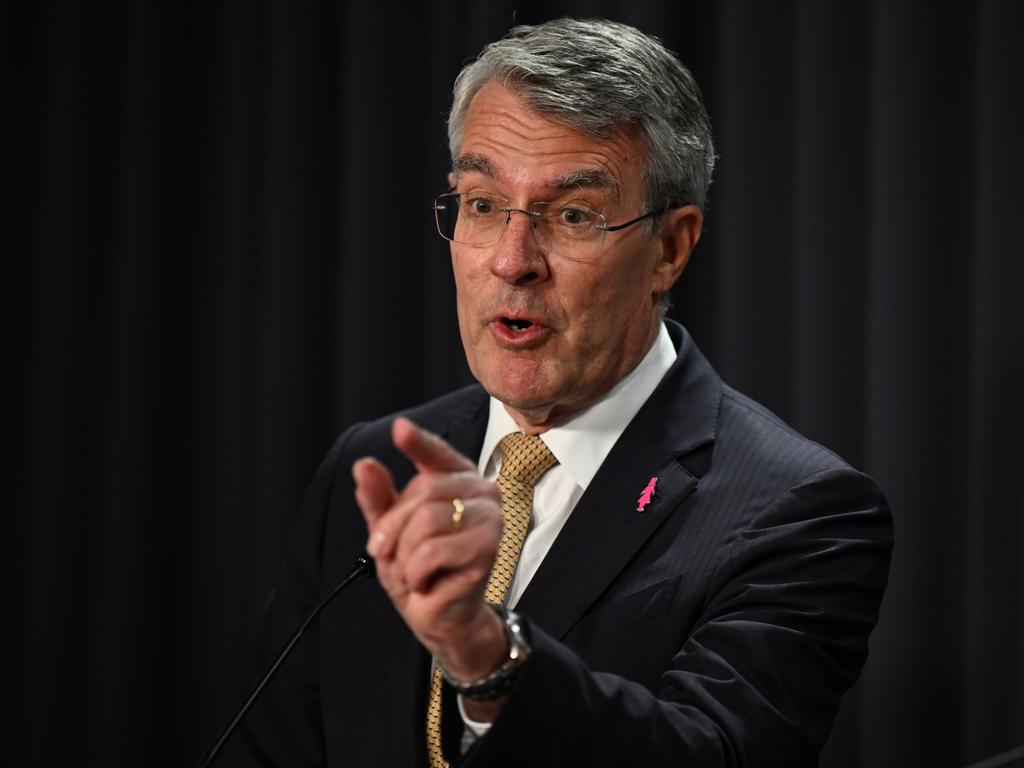Abdul Nacer Benbrika released on an extended supervision order
Notorious terrorist Abdul Nacer Benbrika has been released into the community on a one-year supervision order despite Commonwealth prosecutors pushing for a three-year term.
One of Australia’s most notorious terrorists, Abdul Nacer Benbrika, has been released into the community despite one forensic psychologist warning he remains a potentially moderate risk.
Victorian Supreme Court Justice Elizabeth Hollingworth on Tuesday ruled that Benbrika was a low enough risk to public safety to be released on a one-year extended supervision order (ESO) and a requirement to continue a deradicalisation program.
The ruling means the radical Muslim cleric was able to walk free from jail Tuesday afternoon after spending 18 years behind bars.
A grey-bearded Benbrika left Barwon Prison about 5.40pm.



He was due to return to his family home with his wife and four other family members
As four vans blocked the view of the prison gate, Benbrika was briefly glimpsed getting into a grey ute and staring blankly out the window as the vehicle sped away the wrong way through the one-way prison entrance.
The convicted terrorist was seen travelling north along Bacchus Marsh Road towards either Bacchus Marsh or Werribee.
The one-year ESO was issued despite Commonwealth prosecutors asking for a three-year order.
His release also comes despite a three-year continuing detention order, which had kept him behind bars, only running out on December 23.
Benbrika had been on the detention order after serving his 15-year prison term for leading a terror cell that conspired to attack the MCG on Grand Final day, Melbourne’s rail network and Crown casino during the Grand Prix.

Justice Hollingworth said the risk of Benbrika committing further offences is now low enough that he is capable of being managed under a ESO.
“The evidence does not suggest that Mr Benbrika would, released into the community, commit a so-called lone wolf terrorist act,” she said.
“Rather, the general nature of the risk posed by Mr Benbrika is that he would radicalise others or encourage them to engage in acts of religious inspired violence.
“The risk of offending is now low enough that it is capable of being managed by Mr Benbrika, living in the community, under a comprehensive ESO.”
During Benbrika’s hearing, forensic psychologist Dr Chelsey Dewson, who had assessed Benbrika as high risk in 2020, assessed his current risk as “moderate to low”.
Justice Hollingworth referenced that finding in her ruling, saying: “The ESO conditions which I’m going to set are sufficient to protect the community, even if Mr Benbrika’s risk was to be regarded as moderate low, as assessed by Dr Dewson rather than low as assessed by Dr (Anne) Speckhard,” Justice Hollingworth said.
“The Attorney-General says, by way of example, that Mr Benbrika might play a supportive role within or on the periphery of the terrorist organisation.”


Benbrika’s release is subject to more than 30 conditions including wearing an electronic monitoring device a submitting to a curfew between 10pm and 6am.
He must participate in Commonwealth-paid psychological treatment and a deradicalisation program and cannot miss three mental health appointments in a row without a reasonable excuse.
He must also participate in a deradicalisation program with a Sheikh from the International Centre for the Study of Violent Extremism.
He cannot communicate or associate with people in jail and people in 15 Middle Eastern countries, as well as the Philippines and Indonesia.
He cannot transfer more than $200 a day, be within 1km of a port or airport, and can only use phones, internet and other technology approved by the AFP.
He is also banned from making speeches or giving presentations about matters including weapons, carrying out violence, terrorist organisation ideologies, that are broadcast or attended by two or more people.
Benbrika cannot work or participate in community programs, leave Victoria or obtain travel documents unless approved by the Australian Federal Police.
He will live with his wife and other family members.
Justice Hollingworth said three of the people at the residence were older than 80 and one was aged 70.
Benbrika has three children who are married and five grandchildren.
Justice Hollingworth said the AFP would likely prohibit Benbrika from having any contact with two of his sons but that should only be ordered by a court.

In a word of warning, Commonwealth lawyers sought to reinforce that any breaches of the conditions would be a serious offence that could trigger a court application to strip Benbrika’s citizenship under new laws passed in the federal parliament this month.
The laws were prompted by the High Court’s decision in November to overturn a ministerial move to revoke Benbrika’s Australian citizenship under the former Coalition government.
If Benbrika had lost his High Court appeal, he was set to be deported once his jail time was up.
But Justice Hollingworth said she didn’t want her hearing to be “hijacked by other matters”.
“This is not the time for ... raising up what are highly contentious other political matters,” she said.
The hearing did not elaborate on what rehabilitation work Benbrika had undergone during his initial sentence.
Justice Hollingworth said since the review of his continuing detention order, Benbrika had seen a psychologist and participated in a deradicalisation program.
She said Benbrika had begun seeing a private psychologist in December 2022 and will continue to receive counselling while out in the community.
“Mr Benbrika was not seeing a psychiatrist at the time of trial and had not been assessed as having any unmet psychiatric treatment needs at that time,” she said.
“However, Mr Benbrika does not object to undertaking a psychiatric assessment and treatment recommended by a psychiatrist who wishes to have a reasonableness requirements imposed.”

Attorney-General Mark Dreyfus welcomed the Victorian Supreme Court’s decision to impose an extended supervision order after it found the risk imposed by Benbrika had reduced.
Mr Dreyfus said Benbrika would be subject to 30 stringent conditions, which the court found were “sufficient to protect the community”.
However, he acknowledged that it did not impose all the conditions sought by the government.
“The ESO will remain in force for a period of one year instead of the three year period sought by the government,” he said.
“The government will carefully consider the court’s written reasons when published, in consultation with the Commonwealth’s lawyers and our security and law enforcement agencies, before determining next steps.”
Mr Dreyfus said he had confidence in Australia’s security and law enforcement agencies to keep the community safe.
He also took aim at Peter Dutton’s handling of the Benbrika case, which was also criticised by Justice Hollingworth on Tuesday.
“Just this morning, the Court noted that Mr Dutton engaged in a “serious breach” of the criminal code by withholding evidence from Mr Benbrika and the court in 2020,” Mr Dreyfus said.
“After this failure was exposed in late 2022, Mr Benbrika sought a review of his Continuing Detention Order – making this case much more complicated than it needed to be.”

Prime Minister Anthony Albanese said: “We have put in place the strongest possible recommendations to ensure community safety and it is a good thing that the courts have determined to do that”.
Deputy Liberal leader Sussan Ley said the government should have done more to keep Benbrika locked up.
“This is a person who sought to harm Australians in the worst possible way. This is a person who wanted to bomb the MCG,” Ms Ley said.
“Just imagine a bomb going off in a Matildas game or in the AFL Grand Final.
“The Labor government should deal with the situation it faces which is a convicted terrorist was behind bars and they should have done everything that they could possibly do to keep him behind bars.”
She refused to answer questions about whether the former Coalition government should take responsibility to limit Labor’s legal options after withholding documents from Benbrika’s legal team.
Benbrika’s ESO will expire at 3pm on December 19, 2024.
Ahead of the ruling, the Attorney-General’s office said the commonwealth had sought to secure the “strongest possible conditions” under law and in accordance with advice from all agencies involved, including police.
The Commonwealth could not apply for another continuing detention order because experts who had previous assessed Benbrika no longer deemed him high-risk.
But the opposition, national security experts and a criminal psychologist all expressed concerns about his impending release and rehabilitation.
The concerns come after a High Court decision to release 148 non-citizens from indefinite detention, leading to six being rearrested within weeks for fresh offences or breaches of their release conditions.
Justice Hollingworth will publish her reasons at a later date.
More Coverage
Originally published as Abdul Nacer Benbrika released on an extended supervision order








